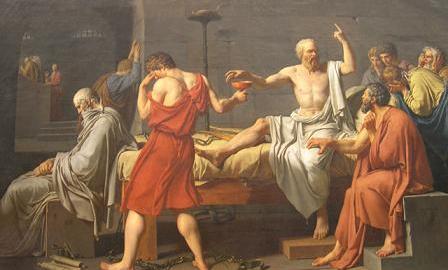Practical Educational Philosophy

Guest posted by Todd Hurst. Crossposted here.
Around December of last year I was approached about doing some consulting work in tech leadership with a local school district. I was excited about the opportunity and immediately began putting together a plan. I thought my first exercise for the group was absolutely brilliant. So brilliant in fact, I couldn’t understand why no one else had attempted it before. What I found was that no one else was doing this particular exercise because it was a bad idea… so bad in fact that it really set a negative tone that I had to fight back from. And as a result, in many ways, the experience completely changed my perception of the teaching profession.
Let’s start with the exercise that started it all off:
Task 1: Do you remember that philosophy of education that you wrote as an undergraduate education student? It has probably been in your desk and forgotten since you graduated. I am asking you to rewrite your philosophy of education.At the same time, make connections to how the integration of technology impacts that philosophy.
The immediate reaction was acerbic. Participants said “I wrote a philosophy of ed to get a grade in a stupid class in college and have never looked at it since. I don’t see the point in wasting my time doing it again when it’s not applicable.” Others kindly did the exercise, but simply looked up their original philosophy of ed and said “nothing’s really changed.” Perhaps incorrectly, I took that route of least confrontation and slowly and quietly backed away from this discussion in general and reformatted my curriculum on the fly to make the best of our time left together.
After a few months of reflection, though, I am more dismayed in this outcome than ever. I have always had a philosophical bent to my worldview and have tended to see the world through an existential/post-modern lens. For me, in many ways philosophy is at the heart of education. Not in that any one person can truly learn the secret to life through a curriculum, but that school elicits essential questions and encourages self-awareness. Critical thinking necessitates questioning.
I can think of no career where having a well-developed personal philosophy is more important than in education. Particularly with the increased politicization of education, the ability to understand why you believe what you do and how it fits within a larger societal context is essential. This is best seen in the current ed reform debates where the discussions typically lack any depth of understanding and fall back to political soundbites.
Educators should have a well-reasoned point of view as to why they are engaged in the profession of teaching. Furthermore, even the process of learning is based to a certain extent in philosophy (What is the nature of knowledge? How is knowledge elicited? What is the role of the learned within society?) The practical realities of the classroom often keep us from reflecting on such topics, though. It’s also easy to fool ourselves into believing that whatever I once believed is necessarily true still. Things can change without our realization. The process of reflection and continual analysis allows us to place our current thinking in context. I may have originally become a teacher because I loved the language that I taught and thought. Now I view that as a small component to my philosophy and instead emphasize the social justice aspect of education.
I don’t know how to encourage more reflection and philosophical analysis within the teaching profession. Thinking about why we teach will not grade the stack of papers that are sitting on your desk at any one given moment and the realities of life may suggest that you should prioritize those papers instead of reading and thinking about philosophy. However, if you really give thought to why and how you teach and how that changes based upon your experiences and students, perhaps that stack of papers looks a little different. It’s impossible to say how your teaching will change until you engage in reflection.
Image Credit: Painting of “The Death of Socrates” by Jacque-Louis David in 1787





